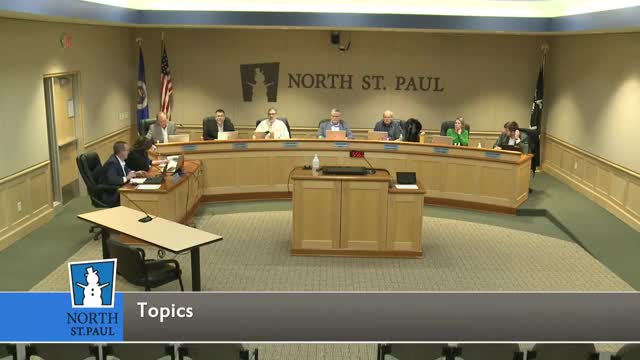Finance director outlines levies, bonds and capital projects; city updates development, student-built homes
Get AI-powered insights, summaries, and transcripts
Subscribe
Summary
At a Jan. 7 workshop, Finance Director Dan Winnick reviewed council financial authorities, funds, and the budget calendar; staff also updated council on development RFPs, a student-built house program, road reconstruction and a library/community feasibility study backed by state and federal grants.
Finance Director Dan Winnick told Mayor Monge and the City Council at the Jan. 7 workshop that the council holds final authority over the city’s finances — levies, budgets and borrowing — and described how the city’s funds and bond plans fit into the coming year’s work.
Winnick gave a summary of depositories used by the city, the types of levies the council approves (general fund, debt, street maintenance, park, EDA and HRA levies), and the difference between enterprise funds (water, wastewater, electric, surface water, solid waste and fiber) and internal service funds (IT, insurance, equipment, mechanics, building maintenance). He said purchases and contracts above $20,000 require council approval and that the city plans to issue bonds in 2025 for a street and utility project.
Why this matters: Council decisions on levies, bond issuance and the capital improvement plan determine property taxes, user rates and long‑term debt that affect residents’ bills and city infrastructure over decades.
Key points from Winnick’s presentation and items discussed by staff:
- Depositories and investments: Staff said the city uses Premier Bank as its official depository and named Morton Capital, U.S. Bank, RBC Capital Markets and the Minnesota Municipal Money Market Fund for investment purposes.
- Levies and budgets: Winnick reviewed the council’s responsibility to adopt budgets for the general fund, HRA and EDA, plus permanent and proprietary funds. He described the budget calendar: auditors start fieldwork the week after the workshop, the city aims to close 2024 books by the end of March, begin the 2025 budget process in April, present financial statements and a proposed budget by late spring, certify a proposed levy in September, hold a Truth‑in‑Taxation hearing in November/early December and adopt final levies at the December meeting.
- Bonds and debt policy: Winnick said the city will begin the 2025 bond issuance process for a street and utility project. He explained the two components staff expects to use: general obligation bonds and general obligation revenue bonds for the portions repaid from enterprise funds. He noted that most municipal bonds carry long terms (Winnick used 20 years as an example) and that staff is trying to move more projects toward cash funding rather than long-term debt when feasible to limit interest costs.
- Capital improvement plan (CIP): Staff described a 10‑year CIP and a corresponding 10‑year financial plan used to forecast large capital needs, levy and rate impacts, and to prioritize projects so the city can avoid unsustainable debt growth.
- Development and projects: Staff provided updates on several local projects: an RFP for the parcel at Margaret Street Commons drew interest but no formal proposals and may be held until market conditions improve; Article 7 downtown is over 50% leased on the residential levels and has some lower-level units rented; student-built house projects (including a house near Webster School at 2007 Sixth Street) are underway; a local contractor is building five twin homes on Delaware and 17th Avenue; and the 2025 road‑reconstruction project had a public meeting Dec. 11 led by WSPR engineering.
- Library/community facility feasibility: Staff said the city received state and federal grants to support a feasibility process for a possible library/community building. At the workshop staff said the city had obtained a state grant discussed in the meeting as $4,500,000 and a federal grant of $850,000; staff told council those funds are available for the feasibility and planning work now underway with architect‑engineer EAPC.
- Project funding and property development: Staff reviewed recent results from the city’s student‑build program (properties on Eldridge that were subdivided and sold), and said future student‑build opportunities will depend on available lots.
Winnick summed up the council’s role: “It is your budget, it’s your levy,” he told the group, adding that the city manager proposes the budget and staff implements it but the council makes the final decisions.
Votes at a glance:
- Adoption of workshop agenda — motion moved (mover not specified), seconded by Council Member Schwer, outcome: approved by voice vote (all present said “aye”).
- Adjournment — motion moved by Council Member Norby, seconded by Council Member Schwer, outcome: approved by voice vote (all present said “aye”).
Ending: Staff said they will send materials to new council members, set up follow-up calls and return with detailed budget and CIP materials in spring as the audit and budget calendar proceed.
